
Drew Hardesty
Forecaster
It began last Wednesday, March 9th.
Nearly every day, an avalanche professional or very experienced backcountry skier has had a close call. In some cases, very close. Too close. The count is seven. (And these are the ones that have been reported to us).
What is striking is that these are not beginner or intermediate backcountry skiers - these are advanced/experts. I've talked to most of them.
There is another pattern here: ALL of these avalanches involve our PWL (persistent weak layer) of the Jan/Feb drought layer of facets. And this makes sense: OVER 70% of our avalanche fatalities since 1941 involve a PWL (persistent weak layer) of facets or depth hoar.
Many of these avalanches have been triggered remotely (at a distance).
All of these skiers have been surprised. This is not to point fingers - many of them are colleagues if not good friends. And many of us have had close calls as well.
What is not surprising is that these professionals have detailed their close calls. This transparency helps others learn from their mistakes and in the end, helps save lives. IF professionals and experts are having close calls, it's worth taking notice and taking two steps back from the line. Be careful out there. These are unusual and tricky conditions.
Soon, we fear, our luck will run out.
The list is below. Photos are in order below that.
March 9th - Mineral Fork of BCC - skier caught and carried, partially buried, lost gear.
March 11 - Ivory Slabs, Cardiff Fork of BCC - skier triggered a large 2-4' deep avalanche, caught but skied off the slab to safety.
March 12 - Matts Basin of BCC - lone skier caught, carried 300', partially buried, lost gear.
March 12 - Silver Fork gulley - skier caught, carried, fully buried 6' deep for 23 minutes. Heroic recovery by others in party. Significant injuries, flown to hospital.
March 14 - Barrieto, Mineral Fork of BCC - skier caught but not carried. Triggers 3' deep 600' wide avalanche, runs 1600' and overruns the old mine and fills the creek with debris.
March 14 - Western Uintas - skier caught, carried, airbag deployed, partially buried. Avalanche 2' deep and 40' wide.
March 15 - Icebox of Porter Fork, Mill Creek - skier triggered a large avalanche from below at his lunch spot; has to scurry away to avoid being overrun by the debris. Did not lose his lunch.
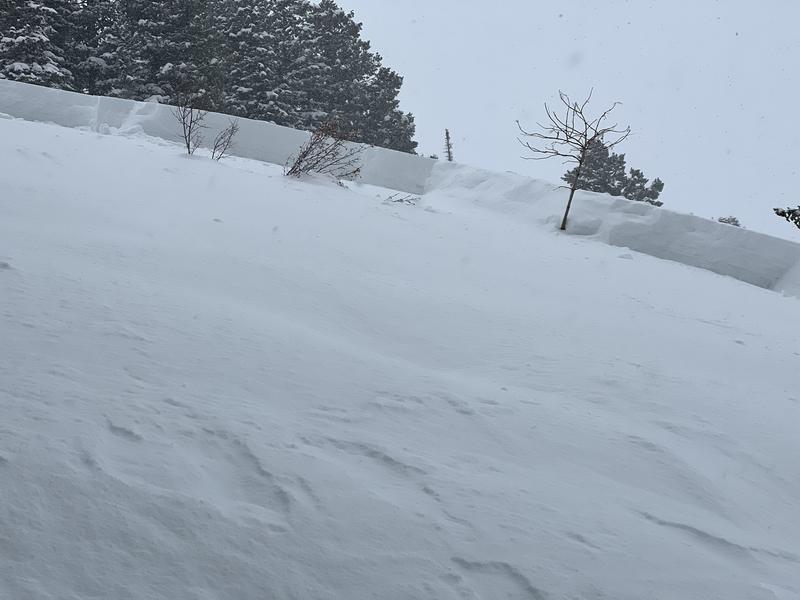

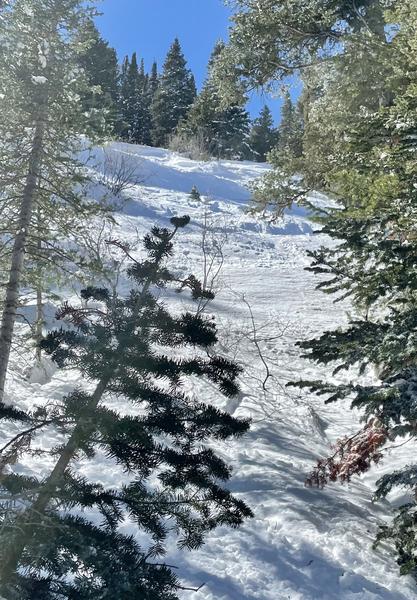
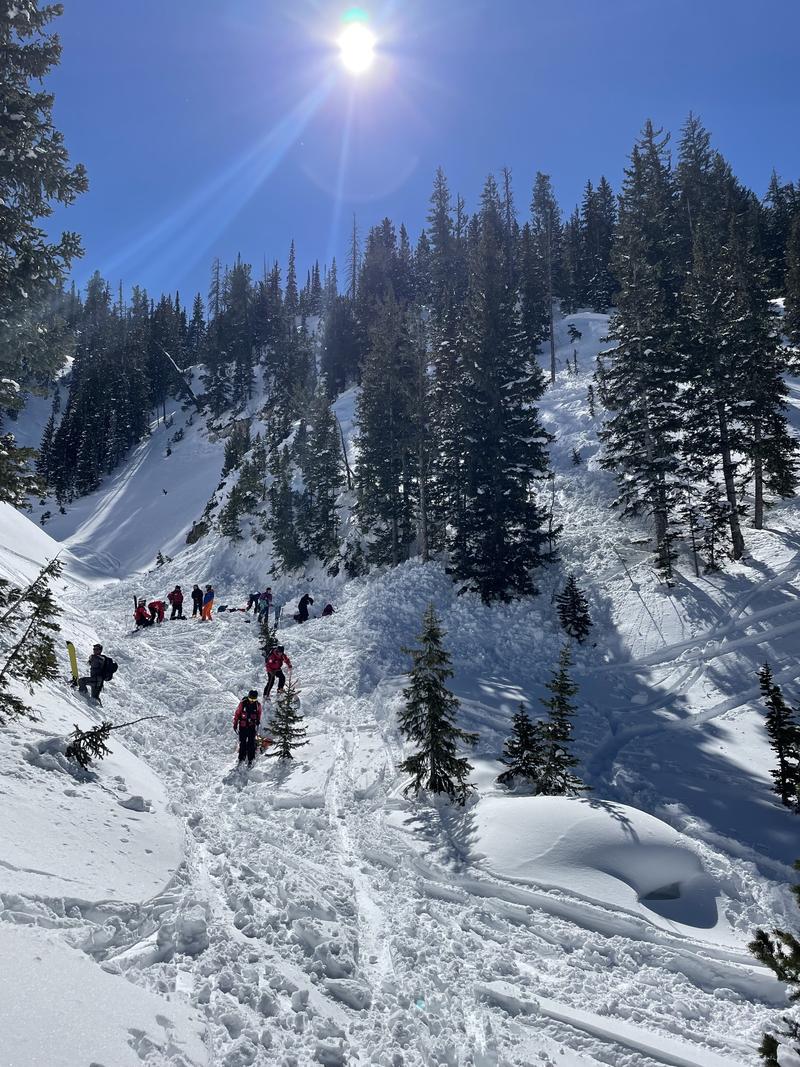
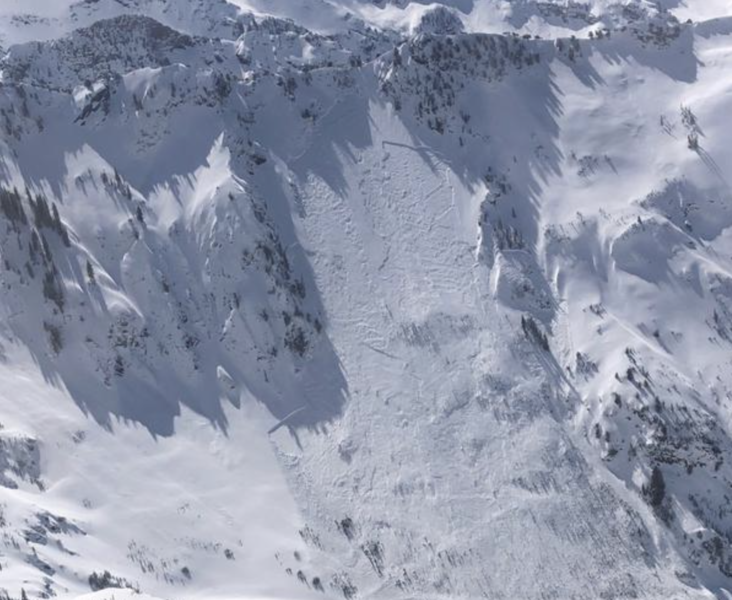

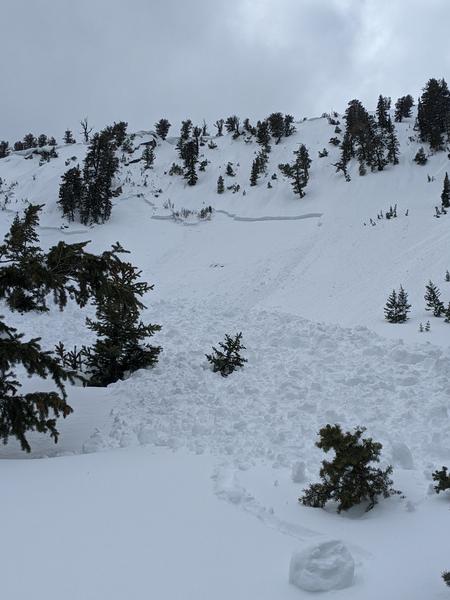
Drew, I enjoy and value you blog posts, thanks for posting. I'm a philosopher by trade and tend to think, perhaps too much, about our predicament when traveling in the backcountry. Over the past few years I have spent some time dwelling on the use of the term "experienced" when discussing those involved in avalanche close calls and accidents. There is a sense of the term that blends into the term "qualified." Some in the recent incidents have been traveling alone in avalanche terrain. When you talk to folks about their close call experiences, do you ask them about why they (still) travel alone in avalanche terrain? In one way this would be a little like asking folks why they go soloing on rock but I think that many would say that a little jaunt out into the backcountry is far less dangerous than a solo run up School Room on a Spring morning; I'm not so sure. Perhaps I don't have a good sense of my fellow (50 and 60 year old) outdoor folks' aspirations and needs in terms of experience from a day out. Perhaps I am one of the few who does not look forward to the excitement or buzz of a close call by myself in avalanche terrain.
Keep up the good work both for the forecast center and reflecting on issues related to avalanches and backcountry travel, the philosophy of the outdoor life.
Yours,
Steve
Steve Downes (not verified)
Wed, 3/16/2022
Great info, you do a fantastic job of getting info out there and conveying the seriousness of the danger. Thank you
Tom (not verified)
Wed, 3/16/2022
Being an old solo telemark skier who rarely skis anything close to 30 degree slopes, I still read and heed your forecasts religiously. On Friday I ran into a much younger and aggressive backcountry skier friend of mine. I mentioned all of the warnings your team at UAC had been posting and asked if it that typically deters most of the crowd he skis with from venturing into the Wasatch. His reply was that it makes them more cautious but they're still going skiing and in fact he was heading out the next morning. Though slightly intimidated by his experience, I replied that I had been following all of the UAC forecasters and the continual message was much more ominous than usual. "Be careful my friend, my gut says we're going to have multiple people buried over the next few days." How true the forecast was.
Joseph Treadwell (not verified)
Wed, 3/16/2022
Drew - you are spot on and I appreciate all that you do in Avalanche Forecasting.
Craig Olsen (not verified)
Wed, 3/16/2022
I haven't skied since the danger hit high. Having been on the wrong side of things before, I don't want to repeat..
Eric D (not verified)
Wed, 3/16/2022
Excellent post, as usual, Drew. Complicated situation out there. This has been a patience-testing season. Thanks to the UAC team for the excellent messaging to help us make good decisions.
Mike Gleue (not verified)
Sat, 3/19/2022
Love love you guys. Don’t go into backcountry that much but follow you guys religiously. I know that you struggle with the classifications of danger. But I was really struck reading the full report today and the above whether the classifications are continuing to cause problems. You guys rate today as only a Moderate danger BUT then talk about we can pretty easily rip out avalanches that are way deadly, even remotely. Isn’t there a disconnect between that and rating the danger at the second lowest level on all aspects/degrees of slope? Please please don’t take this as a criticism of you guys. Don’t mean it that way. It just really makes me wonder about the classification approach particularly in these scenarios when yeah the risk is lower but in many ways the risk is really high.
K Dennis (not verified)
Sat, 3/19/2022






